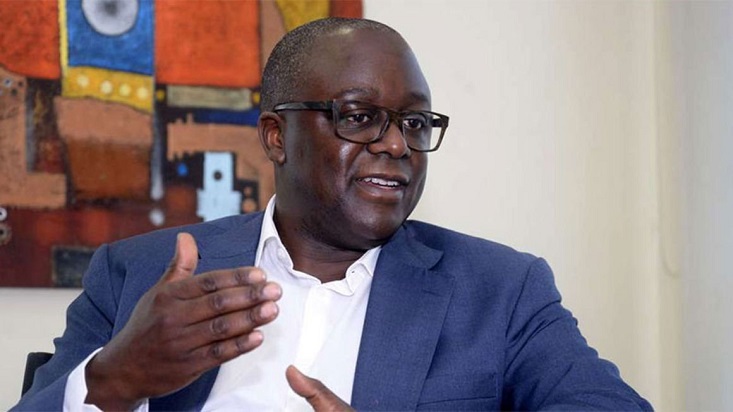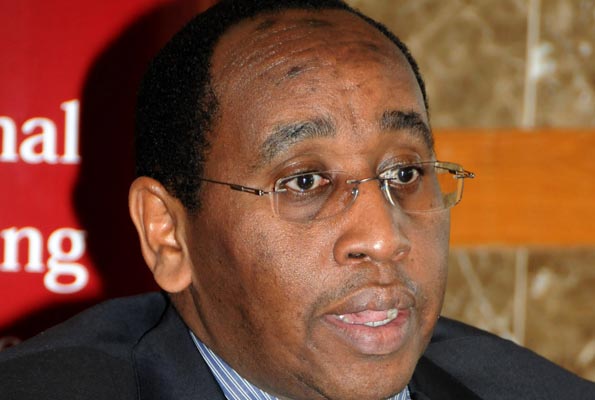They run the world’s most profitable company, oversee one-tenth of global oil output and their decisions help shape the fate of a nation. Their paychecks, however, are a little less grandiose.
Saudi oil giant Aramco is a cash cow for the kingdom, allowing the royal family to wield power with a drip-feed of petrodollars. For executives, it’s a relatively modest life compared with some of their peers elsewhere.
Last year, top management and board members—about 17 people in total—split roughly $30 million worth of compensation and benefits. That was half of what rivals Exxon Mobil Corp. and Chevron Corp. handed their executives and directors, though they would have been subject to income tax whereas Saudi nationals aren’t.
Chief Executive Officer Amin Nasser collected no more than a $5 million package in 2016 as the company began preparing its protracted initial public offering, people familiar with the matter said. That was less than a fifth of what Exxon’s then-CEO Rex Tillerson received at the time.
Even when taking into account the tax regime and other perks like secluded housing with private pools, the numbers are hardly staggering compared with the grand plan for the company.
Saudi Crown Prince Mohammed bin Salman wants Aramco valued at a spectacular $2 trillion when the government eventually sells shares in it, the centrepiece of the biggest economic transformation since the firm was brought under state control in the 1970s. Inside the C-suite, senior executives for decades have been schooled in the mantra that long-term success trumps all other priorities. It’s about the future of the kingdom, not personal enrichment.
“This is the lifeblood of Saudi Arabia,” said Ellen Wald, who runs her own energy and political consulting firm and is author of the 2018 book “Saudi, Inc.: The Arabian Kingdom’s Pursuit of Profit and Power.” Senior leaders “see themselves as stewards of this incredible national resource,” she said.
It’s Not All About the Paycheck at Aramco
Aramco hasn’t publicly revealed compensation details beyond the aggregate figures, which were included in an April bond prospectus. A spokesman for the Dhahran-based company, officially known as Saudi Arabian Oil Co., said the policy is to remunerate managers in a manner that’s consistent with Aramco’s strategy and objectives.
More details may emerge should Aramco move ahead with its long-anticipated public listing, which has been delayed repeatedly, in part because some investors are concerned that the proposed valuation is too high. Prince Mohammed will decide in the next two days whether there’s enough public support from local asset managers and wealthy Saudi families to go ahead with the IPO, people familiar with the process said.
He wants to sell part of the firm to outside investors to underpin his “Vision 2030” package of reforms. The goal is to diversify the economy, slash unemployment and reduce the reliance on oil.
There has been plenty of reason to speculate about lavish payouts for executives. In Europe and the U.S., there’s usually at least a cursory relationship between a company’s size and profitability and what it pays top brass.
Aramco booked a staggering $111 billion in profit last year, more than what five of its biggest rivals—Exxon, Chevron, Royal Dutch Shell Plc, BP Plc and Total SA—earned together. And the IPO target would make it the world’s most valuable public company, surpassing other oil giants by multiples.
The firm’s oil revenues also have long helped finance the lives of members of the House of Saud, whose collective net worth is estimated at more than $100 billion, according to the Bloomberg Billionaires Index.
But Aramco board members have been dismissive of compensation packages sized according to U.S. standards, said the people, who asked not to be identified discussing confidential information. Directors were also skeptical of incentives that could push employees to maximize short-term results at the expense of long-term performance, the people said.
“There’s this feeling of intergenerational equity of the stewardship of Saudi oil that’s been a really strong part of Aramco’s mission,” said Jim Krane, an energy research fellow at Rice University’s Baker Institute. It’s about “preserving the oil for future generations.”
The board has explored ways to align Aramco’s executive compensation with U.S. and European standards to appeal to international investors, people familiar with the matter said. Directors have mulled stock grants and long-term incentive awards, which often make up the bulk of executive pay at Western firms.
The board has also weighed granting equity awards to all Aramco employees, one of the people said. Nasser’s pay package mainly consisted of salary and deferred compensation, they said.
What National Oil Firms Pay Executives
There are also big pay disparities between Aramco and other large oil companies controlled by governments. Regulatory filings show that members of the management board of Russia’s Rosneft PJSC split an aggregate $63.9 million in 2018, while a dozen directors and senior bosses of PetroChina Co. got a total of $1 million that year. However, rules and customs for disclosure and classification of executive compensation vary greatly between jurisdictions, making such figures hard to compare.
Working at Aramco, for example, comes with many benefits beyond salaries. Jobs at the company are highly coveted among Saudis. Top candidates are sometimes recruited as early as their teens. A job offer can be a ticket to a university education in the U.S., career-long job security and immense prestige back home.
Things get even better for those who make it to the senior ranks. Current and former executives, and their families, mainly live in Ar-Rabiyah, an enclave in northern Dhahran that’s filled with opulent mansions with pools.
They enjoy a wide range of services and benefits paid for by Aramco, like cars and drivers, gardening and housekeeping, people familiar with the matter said. Contracts for senior executives also include health insurance for the person’s wife, or wives, one of the people said.
“You’re basically a rock star if you work for Aramco,” Krane said. “It’s one of the only meritocracies in Saudi Arabia.”





